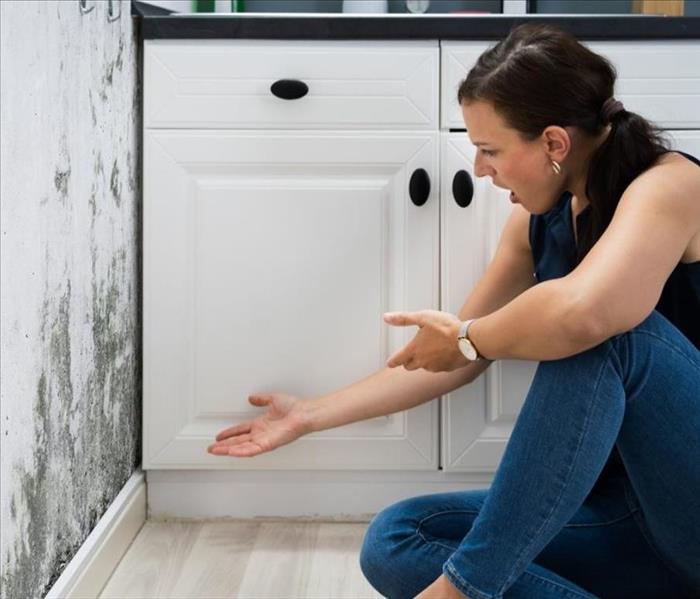Is Bleach Effective in Cleaning Up Mold at my East Mahoning County Home?
1/15/2021 (Permalink)
Living in the Valley, you know mold is inevitable. Mold is everywhere. And most homes have it. Especially houses with basements. What can you do as a homeowner to try and control it? Is bleach an effective method to kill the mold? Allow SERVPRO of East Mahoning County to deliberate this approach.
To get right to the point. Bleach does not kill mold. According to the EPA…” Biocides are substances that can destroy living organisms. The use of a chemical or biocide that kills organisms such as mold (chlorine bleach, for example) is not recommended as a routine practice during mold cleanup.”
But why not? The EPA has not always had this stance on the subject. In fact, sources such as the Huffington Post and the CDC still suggest using bleach to kill mold. It is not that bleach is not effective at all. It is the fact that it does not work on all surfaces. If we are talking about hard materials such as tile, sure bleach can work to remove mold. But if we are talking drywall or other porous materials…think again. Mold has roots---that spread. The only true effective way to get rid of mold in your walls--- is to take the walls out.
Take a peek at your Clorox bottle… (if you are lucky enough to have one in 2021.) It is meant for non-porous surfaces, right? That is because it is only capable of attacking surface mold. It will not destroy those roots that have embedded themselves in your basement drywall.
Some restoration companies advertise “mold removal” and may even guarantee to remove all mold. This is a fallacy because removing all mold from a house or business is impossible; microscopic mold spores exist almost everywhere, both indoors and outdoors. Here are the facts:
- Mold is present almost everywhere, indoors, and outdoors.
- Mold spores are microscopic and float along in the air and may enter your home through windows, doors, or AC/heating systems or even hitch a ride indoors on your clothing or a pet.
- Mold spores thrive on moisture. Mold spores can quickly grow into colonies when exposed to water. These colonies may produce allergens and irritants.
- Before mold remediation can begin, any sources of water or moisture must be addressed. Otherwise, the mold may return.
- Mold often produces a strong, musty odor and can lead you to possible mold problem areas.
- Even higher-than-normal indoor humidity can support mold growth. Keep indoor humidity below 45 percent.
So, put down the bleach bottle and call the experts at SERVPRO of East Mahoning County. We are here to evaluate your mold problem at your Youngstown home or business. This is the cornerstone of our business. And we have the best equipment, education, and employees to take care of any mold problems or questions. Call us today at 330.536.7477 and follow us on Facebook for more tips of the trade.




 24/7 Emergency Service
24/7 Emergency Service
